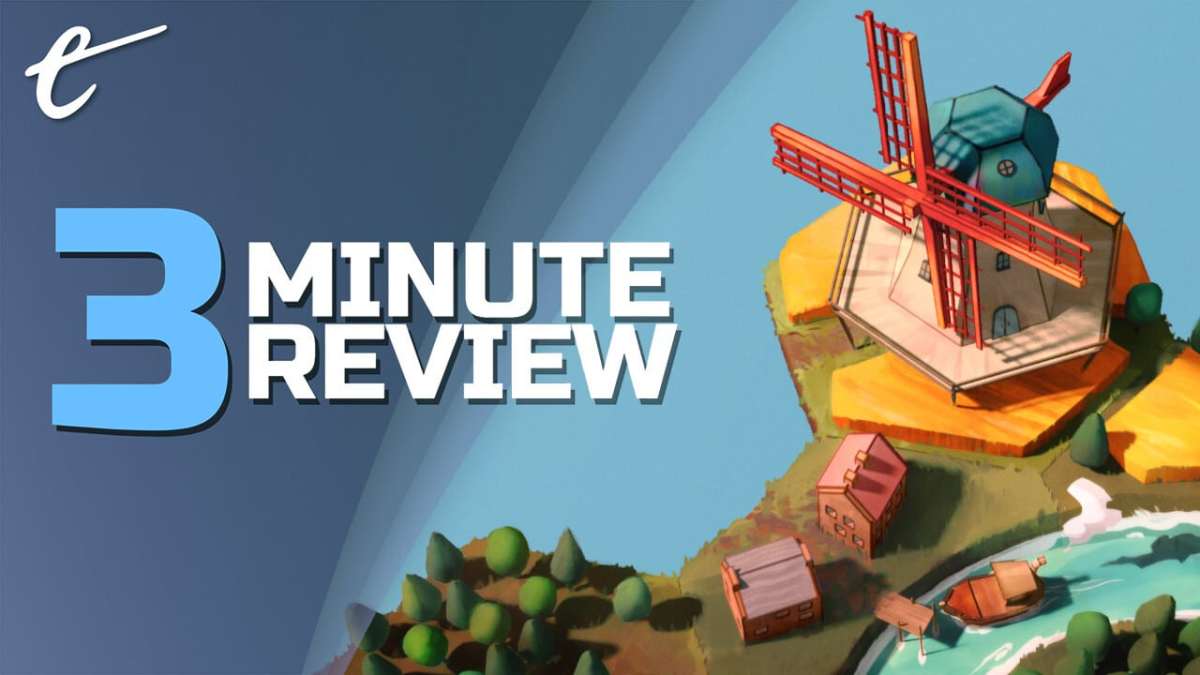Dorfromantik is a relaxing tile placement game by Toukana Interactive that functions more or less like a solo board game.
Each game you are presented with the top tile from a deck of tiles, which you can place almost anywhere adjacent to an existing tile. However, connecting tile edges of the same kind will reward more points, and some tiles will have quests to connect a certain number of similar tiles to its group in exchange for more tiles. The effect is that each tile placement is a small part of a larger puzzle. You could search for a place where all sides of the tile match, or place it where it will help complete a quest and prolong your game, or both.
There are a handful of different tile edges, including relaxing countryside staples like trees, fields, houses, and waterways. Over the course of a game, you’ll create picturesque towns, rivers, forests, and farms depicted with soft, charming graphics. The tiles make a small pop when they’re placed and bump the tiles around them, and there are just enough moving parts on the tiles that it avoids looking static. The music is similarly gentle, and the game nails its relaxing, zen-game aesthetic.
Achieving a high score is always one of the main goals in the classic mode of Dorfromantik, and your enjoyment of the game will depend largely on your feelings about the scoring mechanic. If you find no pleasure in increasing your score in a solo game, you’re left with the game’s few other rewards.
As you play, you’ll unlock challenges and new tile skins that look nice and increase the visual variety. The challenges are always listed on screen and track your long-term or individual game performance. One might call on you to make a train route with at least 25 tracks, and another might call on you to place 2,000 tiles across all games.
You can unlock additional challenges by completing special quests found on tiles hidden on the edges of the board. But by and large, you have to be self-motivated to complete these challenges, since they only award a new tile skin or a Steam achievement, neither of which affects the core gameplay. They’re something to strive for, but once you get there, there’s only another arbitrary hurdle on top of the exact same gameplay.
My core issue with Dorfromantik is the same reason I enjoy it: It’s exactly what you expect.
There’s an intrinsic joy to placing tiles where you see fit and watching a cute little board take shape. You can puzzle for ages about the best placement, but it’s more fun to just do what feels right and keep the tiles coming. There aren’t any worthwhile extrinsic rewards, so you might as well play whatever way seems the most fun to you for as long as you feel like it – and then stop. But the lack of unlocks means the game never gets any more complicated or deep. It’s exactly what you expect, over and over.
There’s hard mode, which gives less quests and more complex tiles, quick mode, in which you aim for a high score with a limited number of tiles, and creative mode, in which you can discard tiles and place as many as you like for fun. None of these modes fundamentally change the game except the creative mode, which might appeal to different kinds of players. There was also a monthly mode that wasn’t unlocked in the pre-release version I played, and there were a few visual glitches that seem likely to be quickly fixed.
If you want a deep, ever-expanding game where you’ll have endless fun, this game might disappoint you with its tightly contained ambitions. However, if you like the sound of a relaxing tile placement game with a simple set of mechanics you can enjoy every so often, Dorfromantik won’t disappoint.
Dorfromantik releases for PC on April 28 for $13.99 with a 30% discount during launch week.
Watch the Review in 3 Minutes for Dorfromantik.






Published: Apr 29, 2022 01:00 pm